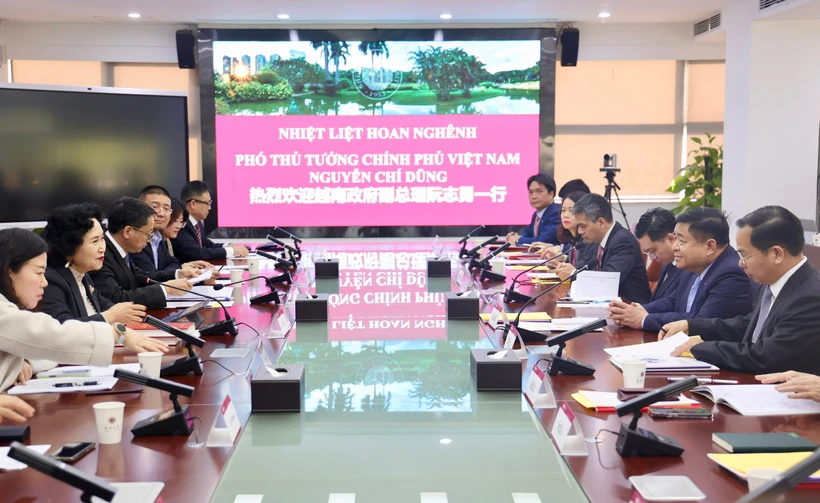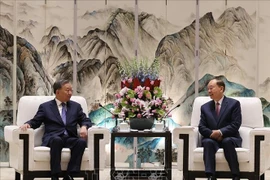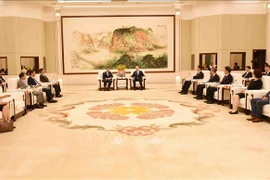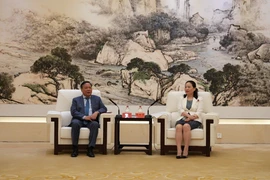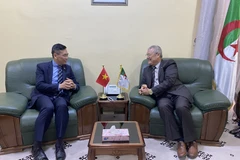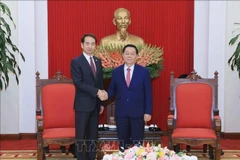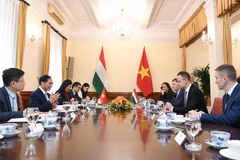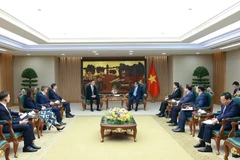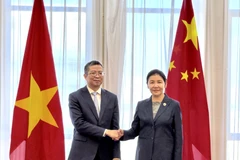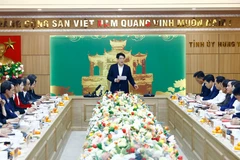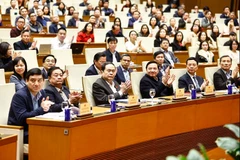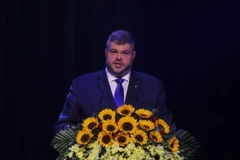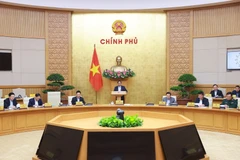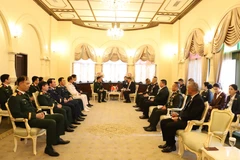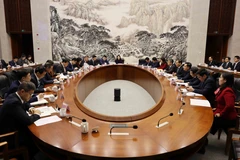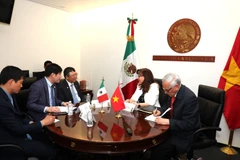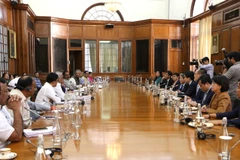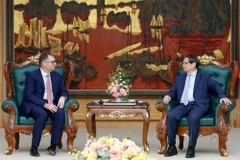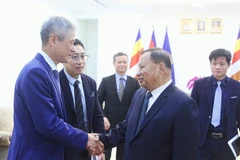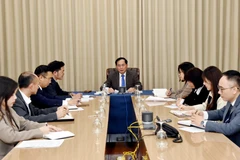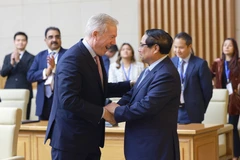Beijing (VNA) – Vietnamese Deputy Prime Minister Nguyen Chi Dung paid a working trip to Guangdong province’s Shenzhen city on March 18 and 19 as part of his visit to China.
Meeting with Executive Vice Mayor of Shenzhen Tao Yongxin, Dung expressed his admiration for the city's transformation into a modern and prosperous metropolis, praising its remarkable economic and social achievements under the leadership of the Communist Party of China, headed by Party General Secretary and President Xi Jinping.
Dung underscored Vietnam's significant economic and social development achievements during nearly 40 years of Doi moi (renewal), which have enhanced the country's capabilities and international standing. He highlighted Vietnam's ambitious goals to become an upper-middle income country by 2030 and a high-income developed nation by 2045, requiring the country to overcome challenges, particularly achieving double-digit growth rates through digital transformation, scientific-technological advancement, and developing the private economic sector as the most important driver.
Expressing his appreciation for the positive and extensive development of the Vietnam – China comprehensive strategic cooperative partnership and the community with a shared future that carries strategic significance, he emphasised that Vietnamese Party, Government, and people consistently view strengthening and developing friendly relations with China as a consistent policy, an objective requirement, a strategic choice, and a top priority in its foreign policy of independence, self-reliance, multilateralisation and diversification of external relations.
Tao, for his part, expressed his gratitude for the support from the Vietnamese Government, ministries, sectors and localities for Shenzhen city. He highlighted Shenzhen's evolution from a new city established after China's reform and opening-up period to becoming the country's largest industrial and commercial centre, and a symbol of socialism with Chinese characteristics.
The official noted that Vietnam is the city's largest trading partner in ASEAN and expressed his desire to strengthen practical cooperation between local administrations, businesses, and organisations from both countries, highlighting focus on four key areas of high-quality development, industry, trade-investment, and tourism.
Dung agreed with Tao’s proposals while requesting Shenzhen to continue bolstering cooperation and exchanging experience regarding the private sector's development, ways to strengthen linkages between economic sectors, the role of the State and the market, and special policies for free trade zones and special economic zones.
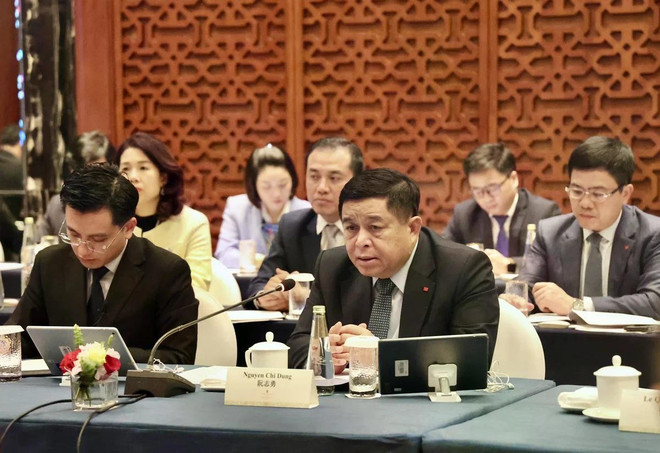
At working sessions with specialised agencies in Shenzhen, Dung shared Vietnam's development priorities in the new era, underscoring the Vietnamese Party and Government's interest in enhancing the private sector's role, improving the business climate, attracting high-quality human resources, and developing free trade zones.
Professor Tao Yitao, Director of the China Special Economic Zone Research Centre of the Shenzhen University, shared Shenzhen's successful development experience, focusing on international integration, persistence in economic reform, improvement in the business environment, and development of science-technology and innovation.
Established in 1980 as China's first special economic zone, Shenzhen has grown into a powerhouse with a GDP of some 500 billion USD in 2024, investing 6.46% of its GDP in research and development. Billed as "China's silicon valley," it hosts technology giants like Huawei, Tencent, and BYD.
Regarding experience in developing the private economic sector, leaders from the Shenzhen Bay Science and Technology Ecological Park, and Development and Reform Commission of Shenzhen Municipality stressed that it is necessary to build mechanisms to encourage enterprises to enhance investment in R&D activities, and accelerate the market orientation, legal framework, and international integration of the business environment.
A representative from the Shenzhen Innovation and Investment Group affirmed the role of the State in identifying the potential of and arrange resources for small firms to operate in strategic areas like science-technology, innovation, smart production, new energy and healthcare.
The Chinese partners pledged to continue sharing experience, supporting Vietnam's innovation ecosystem development, expanding investment, and implementing new cooperation models with Vietnamese partners in the spirit of being "both comrades and brothers”./.
